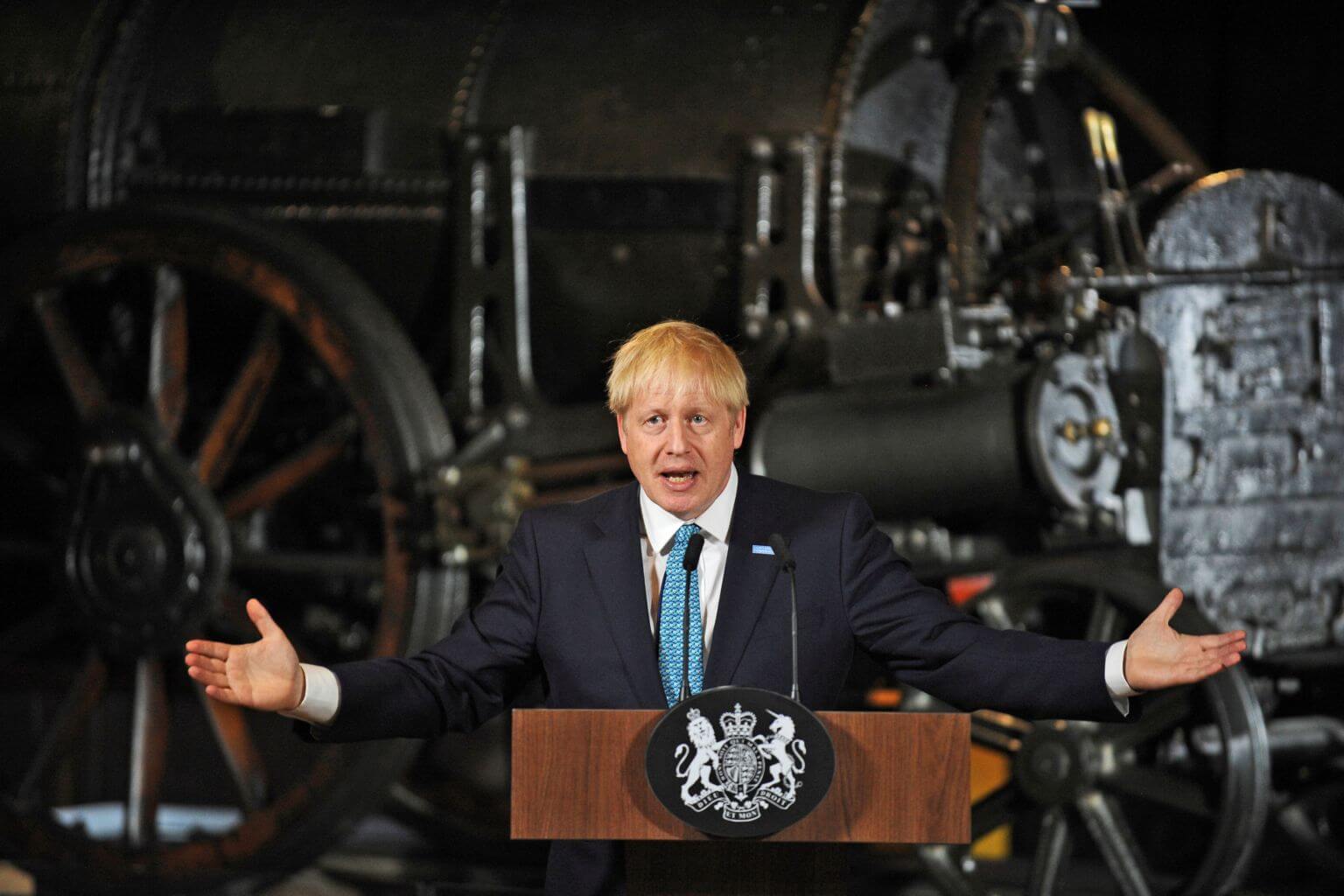UK PM Boris Johnson heads to Scotland as no-deal Brexit concerns grow
Sign up now: Get ST's newsletters delivered to your inbox

British Prime Minister Boris Johnson will visit a military base in Scotland as part of a tour of the United Kingdom to announce extra funding for local communities on July 29, 2019.
PHOTO: REUTERS
Follow topic:
LONDON/FASLANE (REUTERS) - Britain's Boris Johnson made his first visit to Scotland as prime minister on Monday (July 29), as his Conservative Party's leader there said she would refuse to support a no-deal Brexit.
Mr Johnson said there was every chance of striking a new Brexit deal with the European Union and that he wanted a grand new trade deal too. "What we want to do is to make it absolutely clear that the backstop is no good, it's dead, it's got to go. The Withdrawal Agreement is dead, it's got to go. But there is scope to do a new deal," Mr Johnson said during a visit to a naval base in Scotland, as part of a tour of the United Kingdom to announce extra funding for local communities.
"What we want need to do is to build a new partnership with all the things that matter to us, sharing cooperation on defence, on security, on intelligence, cultural, scientific collaboration, everything that you would expect," Mr Johnson said.
"At the core of it all a new free trade deal that allows us to take back control of our tariffs and our regulations and to do things differently where we want to," he said.
He also ruled out another referendum on Scottish independence after the 2014 vote.
"This was a once-in-a-lifetime, once-in-a-generation thing, everybody was told that," he said. "It was on that basis that they cast their votes and I think it would be totally wrong now to break that promise to the people of Scotland and the UK and have another referendum."
Mr Johnson took office last Wednesday with a pledge to deliver Britain's exit from the European Union by Oct 31, "no ifs or buts", and the government is ramping up preparations for "no deal" - something some senior politicians have warned could make the break up of the United Kingdom more likely.
Scotland rejected independence by a 55-45 per cent majority in 2014 but then voted to stay in the EU at the 2016 Brexit referendum, fuelling calls for a second independence vote from those who argue it is being taken out of the bloc against its wishes.
His office said he was also planning a trip to Wales to meet local farmers, and to Northern Ireland to discuss ongoing talks to restore its devolved executive.
"Our Union is the most successful political and economic union in history. We are a global brand, and together, we are safer, stronger and more prosperous," Mr Johnson said in a statement ahead of the visit.
"So as we prepare for our bright future after Brexit, it's vital we renew the ties that bind our United Kingdom."
Mr Johnson's promise to deliver Brexit, with or without a deal, has put him at odds with some in his party who oppose a "no deal" exit - including its Scottish leader Ruth Davidson. His office did not say whether he would meet Ms Davidson on Monday.
"When I was debating against the pro-Brexit side in 2016, I don't remember anybody saying we should crash out of the EU with no arrangements in place to help maintain the vital trade that flows uninterrupted between Britain and the European Union," Ms Davidson wrote in the Scottish Mail on Sunday newspaper.
"I don't think the government should pursue a no-deal Brexit and, if it comes to it, I won't support it."
Mr Gordon Brown, a Scot and a former prime minister, said this month that Johnson could be the United Kingdom's last prime minister as he could be on a collision course with Scottish nationalists.
Last week, Scotland's nationalist leader Nicola Sturgeon wrote to Mr Johnson telling him his Brexit plans would hurt the Scottish economy and that she would continue preparations for a second independence referendum.
Mr Johnson will use the visit to announce £300 million (S$508 million) of new funding for so-called "Growth Deals" across Scotland, Wales and Northern Ireland, which provide investment for local businesses and projects.
It follows a trip to the north of England over the weekend to set out plans to boost investment in local services in a push to address frustrations among voters that led to the vote to leave the EU.
The Sterling hit a two-year low on Monday as Mr Johnson's government said it now assumed there would be a no-deal Brexit because a "stubborn" European Union was refusing to renegotiate their divorce.
Many investors say a no-deal Brexit would send shock waves through the world economy, tip Britain's economy into a recession, roil financial markets and weaken London's position as the pre-eminent international financial centre.
The pound, which was trading at US$1.50 (S$2.06) on the day of the 2016 referendum, dropped 0.4 per cent to US$1.2325, the lowest level since March 2017.
Many investors say a no-deal Brexit would send shock waves through the world economy, tip Britain's economy into a recession, roil financial markets and weaken London's position as the pre-eminent international financial centre.
The pound, which was trading at US$1.50 (S$2.06) on the day of the 2016 referendum, dropped 0.4 per cent to US$1.2325, the lowest level since March 2017.

